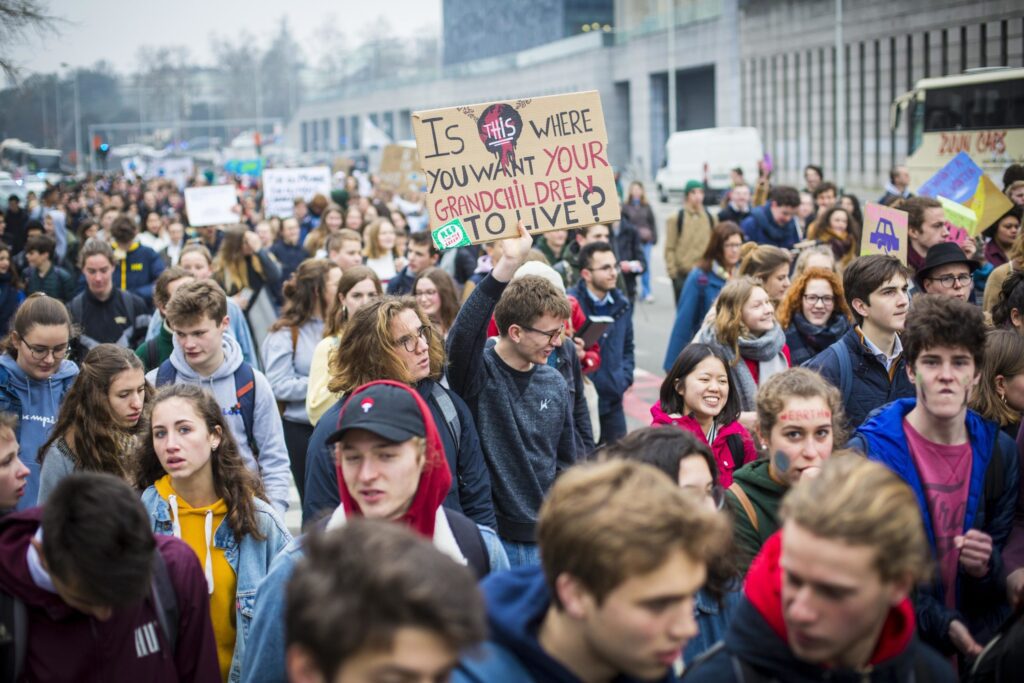Almost half of the world’s children are seriously threatened by the rapidly deteriorating global climate.
By Reynard Loki
“Adults keep saying we owe it to the young people to give them hope. But I don’t want your hope,” said Swedish climate activist Greta Thunberg in 2019. “I don’t want you to be hopeful. I want you to panic. I want you to feel the fear I feel every day.” Now the famed young eco-warrior and Nobel Peace Prize nominee might get her wish as she, along with other youth activists, has collaborated with UNICEF—a United Nations agency working in more than 190 countries and territories to provide humanitarian and developmental aid to the world’s most disadvantaged children and adolescents—to launch an alarming new report that has found that a billion children across the world are at “extremely high risk” from the impacts of climate change.
Released ahead of the United Nations Climate Change Conference to be held in November in Glasgow, Scotland, and on the third anniversary of Fridays for Future (FFF), the youth-led global climate strike movement founded by Thunberg, “The Climate Crisis Is a Child Rights Crisis” is the first climate report to combine high-resolution geographic maps detailing global environmental and climate impacts with maps that show regions where children are vulnerable due to an array of stressors, including poverty and lack of access to education, health care or clean water. The report introduces the new Children’s Climate Risk Index (CCRI), a composite index that ranks nations based on children’s exposure to climate shocks, providing the first comprehensive look at how exactly children are affected by the climate crisis, offering a road map for policymakers seeking to prioritize action based on those who are most at risk. Nick Rees, a policy specialist at UNICEF focusing on climate change and economic analysis and one of the report’s authors, told the Guardian that “[i]t essentially [shows] the likelihood of a child’s ability to survive climate change.”
“For the first time, we have a complete picture of where and how children are vulnerable to climate change, and that picture is almost unimaginably dire. Climate and environmental shocks are undermining the complete spectrum of children’s rights, from access to clean air, food and safe water; to education, housing, freedom from exploitation, and even their right to survive. Virtually no child’s life will be unaffected,” said Henrietta Fore, UNICEF’s executive director. “For three years, children have raised their voices around the world to demand action. UNICEF supports their calls for change with an unarguable message—the climate crisis is a child’s rights crisis.”
In addition to finding that approximately 1 billion children—nearly half the world’s child population—live in countries that are at an “extremely high risk” from climate impacts, the report found that almost every single child on the planet has been exposed to at least one climate or environmental stressor, such as air pollution, flooding, heat waves, tropical storms, flooding or drought. Moreover, the report found that 850 million children—approximately one-third of the world’s child population—are exposed to four or more stressors.
Read the rest at Pressenza.
Reynard Loki is a writing fellow at the Independent Media Institute, where he serves as the editor and chief correspondent for Earth | Food | Life. He previously served as the environment, food and animal rights editor at AlterNet and as a reporter for Justmeans/3BL Media covering sustainability and corporate social responsibility. He was named one of FilterBuy’s Top 50 Health & Environmental Journalists to Follow in 2016. His work has been published by Yes! Magazine, Salon, Truthout, BillMoyers.com, CounterPunch, EcoWatch and Truthdig, among others.
